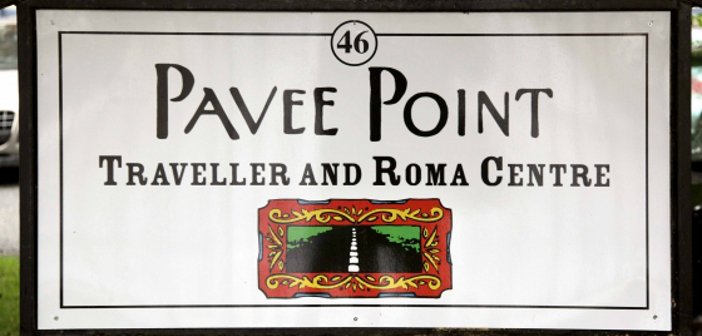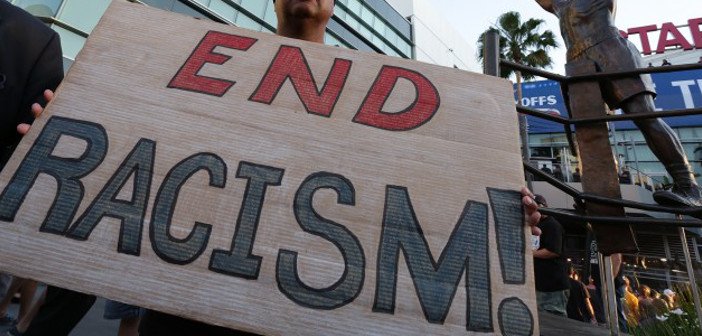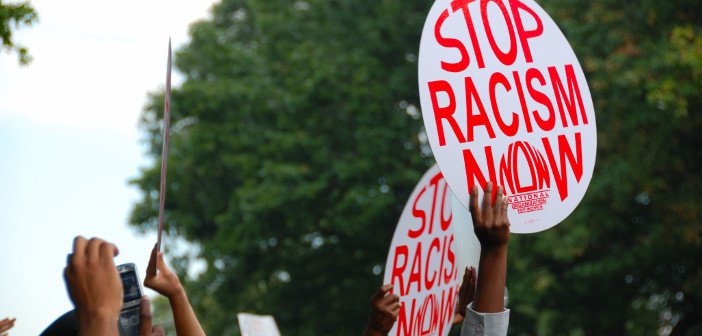Racism in Ireland | Let’s Not Lose More Lives to Mindless Hatred
When we hear people talk about racism, we might think about things like the Klu Klux Klan, Martin Luther King and Malcolm X. Or, we might think about the likes of the Roma community in Ireland, and the scrutiny this group constantly faces. In October 2014, almost 200 people gathered in Waterford city outside the home of a large Roma family, which included toddlers and children. In the midst of this ‘peaceful protest’ against crimes the local Roma community had allegedly committed, windows were smashed and doors were kicked in. The family had to be evacuated and moved to undisclosed addresses.
Or, we may think of Ireland’s traveller community who are also long suffers of racism, continuously having to deal with prejudice from people of their own nation, and hate pieces like this, written by Daily Mail columnist Brenda Power, telling them to “Teach (their) children to use a golf club or a hurley for something other than breaking a cousin’s leg in a family fracas.” The article in question was hit with major backlash from traveller rights group Pavee Point, who said that “Nobody deserves to be the target of this hate and racism from our national press.”

Racism, by definition, is ‘Prejudice, discrimination, or antagonism directed against someone of a different race based on the belief that one’s own race is superior.’ Unfortunately, the previous examples are only two of the hundreds of attacks that travellers, immigrants, and non-Irish people face every year in this country. I sat down with Kevin O’Leary of the Irish Immigrant Support Centre (NASC) to discuss the different forms of racism active in Ireland today.
It’s the little things like ‘oh, where are you from?’ ‘I’m from Cork.’ ‘No, where are you really from?’ These kind of things that people don’t realise (…) They don’t see these undertones to what they are saying.
It’s this kind of unintentional racism that we are most likely to be unaware of doing. When questioning someone about where they are ‘really’ from, we unintentionally exclude that person. We refuse them the right to call the place they live their home. We have deemed this sort of racism acceptable, but just because it is seen most often doesn’t mean that it can’t be dangerous.[pullquote]When questioning someone about where they are ‘really’ from, we unintentionally exclude that person. We refuse them the right to call the place they live their home.[/pullquote]
I also asked Kevin about the forms of racist abuse he would see in the centre. First, he touched on the verbal aspect, saying that “… it’s a daily occurrence for some people. We would have many instances of verbal abuse, where people on the street are being harassed and having stuff repeatedly shouted at them.” Unfortunately, often these attacks don’t just stop there.
“Clients who come in here would be physically assaulted; and these aren’t singular reports, we’ve had repeated events.” O’Leary went on to tell me that when people report these crimes – and that if they end up going to court – the judge will usually just file it as an assault due to a lack of evidence. This means that in the system it’s not coming up as a problem, because it’s not being reported as the crime it is – a racially motivated attack.

In a survey taken by NASC, 82.8% of people who had experienced racism and discrimination said they did not report the incident. Almost half of these people believed that nothing would happen if they did. Upon asking Kevin why this was, he said that “They have come to accept it, which is a terrible position to be in. You have to grow this hard skin and just accept it.” Should we tell someone who has just been mugged or beaten up to accept it? Should we tell them to toughen up? Of course not. So why do we do that here?
After speaking with Kevin, I went on to interview some foreign members of the public. That was when I met Elina Temiraeve, a twenty year old student from Russia. She told me stories from her childhood and about how she was exposed to most of the racism in her life when she was younger. “When I was younger, the term ‘paki’ was so commonly used by the kids, it was almost as if it was cool to call someone that.” She was a perfect example of someone who was forced to ‘toughen up’ in the face of a racist environment.[pullquote]In a survey taken by NASC, 82.8% of people who had experienced racism and discrimination said they did not report the incident. Almost half of these people believed that nothing would happen if they did.[/pullquote]
Elina went on to tell me of the times members of her family had been victims of racially motivated assaults. “My mum, for example, she was pushing my sister in her pram, and some man came up to her and spat in her face.” Unfortunately, Elina’s mother had also been exposed to many incidents of verbal abuse. “When she was running for the bus,” she said, “she got on it, and the bus driver said something like ‘foreign pigs’ to her, just because she was late.”
After speaking with Elina, I met up with a teenager called Asi Ncame – a 19 year old student from South Africa. He informed me that most of the racist comments he received had come from children. Asi gave an account of an Irish child following him around a shopping centre. “Every few minutes he’d say something like ‘Here, what’s that smell? Man, Africans smell weird’ and then run away.”

Eventually, after relentless teasing, Asi confronted the boy. When he asked him to stop the boy replied ‘It’s not my problem you stink.’ This wasn’t the only time Asi had experienced racist comments from a child. “I remember I was up by my friend’s house as well, there were these little girls that were copying what my friend and I were saying (…) When my friend and I laughed at them they cycled past and shouted ‘Haha, nigger’ at the same time.”
Even though Asi had been exposed to these racist comments himself, he chose not to condemn Ireland’s treatment of foreign people. “The thing is,” he said, “Ireland is actually really hospitable towards refugees or asylum seekers and there are a lot of them.” Just like this piece, his intention was not to paint Ireland as a racist nation, but to inform people of the racist ideologies still at work in our society – to inform us all to be aware of our words.
Whether it’s unintentional racism like asking someone where they are really from, or making racist assumptions in front of children, each of us has a responsibility to ensure that we do not engage in these kinds of prejudices. The deaths of Michael Brown, Sandra Bland, Tamir Rice and countless others have already shaken the USA and enraged its people. Let us make sure that another life is not harmed, or even lost, in the name of mindless hatred.
